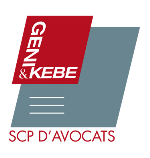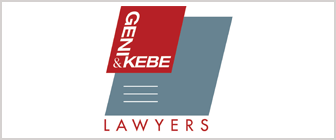Mouhamed Kebe and Hassane Kone of Geni & Kebe in Dakar look at the key issues investors should be aware of
Cameroon is described as the largest economy of Central Africa because of its demographics (20 million), with an area of 475,442 km², and a diversified economy.
As a state party to the Organisation for the Harmonisation of Business Law in Africa (OHADA) and the Economic and Monetary Community of Central Africa (CEMAC), Cameroon has adopted financial regulations enacted for the whole countries of CEMAC.
The legislative framework for financial and banking system
Financial and banking systems in Cameroon are governed by the rules of CEMAC, the rules of the Central Bank of the Central Africa Republics (BEAC), and domestic rules relating to banks and securities. They are mainly included in the following:
• Convention of January 17 1992 on the harmonisation of the banking regulation within the states of CEMAC
• Regulation No. 02/00/CEMAC/UMAC/CM of April 29 2000 on the harmonisation of exchange regulations in the states of CEMAC
• Regulation No. 03/01-CEMAC-CE-03 amended by Regulation No. 06/03-CEMAC-UMAC of November 11 2003 on the organisation, operation and supervision of the financial market in CEMAC
• Act No. 99/015 of December 22 1999 on the control and supervision of domestic financial market, entrusted to the Commission of Financial Markets (CMF)
Issues and potential challenges for banks, financial institutions in Cameroon
The banking and financial sector in Cameroon is branded by a large number of commercial banks with nearly 14 institutions (subsidiaries of French companies, Anglo-Saxon and some local or regional banks) and a banking rate estimated at less than 5%. Banks hold about 70% of total financial system assets. The banking system is mixed, divided and relatively concentrated. Although the reserves are in excess, overall, there is virtually no interbank market. In the absence of collateral, banks tend not to lend to other banks to avoid counterparty risk.
Microfinance institutions
A new strategy has been adopted in 2012 to clean up the sector of microfinance, which represents nearly 400 to 450 institutions registered with the Ministry of Finance in 2012. With an average of 1.5 million consumers collected savings of about XAF400 billion, their lending rates vary from 6 % to 78 % per year, while deposit rates ranging from 0.3% to 16% per year.
The exercise of an activity in this sector is subjected to approval of the Ministry of Finance issued further to the assent of the Central African Banking Commission (COBAC).
MFIs operate as corporations, associations, cooperatives. The services provided range from savings to credit, banking, check cashing, bank, fast funds transfer…
Stock exchange values
Under Act no. 99/ 015 of 22 December 22 1999, transactions operated in the financial market are handled through the Douala stock exchange owned 63.7% by banks and financial companies, 23% by the state, and 13.3% by insurance companies.
The securities market remains a marginal source of financing for the private sector. After nearly ten years of existence, only three companies are listed with a market capitalisation of XAF115 billion, circa $250 million (0.9% of GDP), which is actually low. It is therefore not sufficient to make it an important source of funding for the private sector.
It is worth mentioning that the Douala stock exchange is competing with Libreville stock exchange. This competition has adversely impacted the development of the both entities. This is why it is currently contemplated to merge them under the support of the African Development Bank (ADB).
The bond market
It is essentially composed of government securities. On December 2013, Cameroon issued a bond on the domestic financial market to raise XAF50 billion (€76.2 million). The aim of the bond debt was contribute to financing large investment programmes, such as port or energy infrastructure projects. The objective is also to diversify financing sources for the national economy through the financial markets. In 2010, Cameroon had already launched a bond that helped mobilise XAF200 billion on the Douala Stock Exchange (DSX).
New legal incentives for investment
Investment is supported by attractive policies based on Act No. 2013/004 of April 18 2013 regarding Cameroon investment. This Act amends and improves the 1990 ordinance and merges several separate rules that were regulated the sector. Under this Act for an investment project to benefit the incentives provided, it must employ during the operation phase and according to the size of the enterprise and sector, at least a Cameroonian by tranche ranging between XAF5 million and XAF25 million of the contemplated investment.
It must also have an annual export of 10 to 25%, net of taxes, use local natural resources of 10 to 25%of the value of inputs as well as contribute 10 to 30% to value added of turnover.
The main eligible sectors are the following:
• Production of competitive goods and services for domestic consumption and export
• Increase in exports of manufactured goods
• Transfer and adoption of appropriate technologies
• Protection of the environment
• Improving the quality of life in rural and urban areas
• Agribusiness, fisheries
• Processing of natural resources
• Construction of buildings and civil engineering
Incentives granted to investors
A lot of incentives are granted to investors through the Investment Code. They range from tax advantages, customs exemptions.
The main advantages are the following:
• Customs exemptions
Temporary Entry of special equipment and industrial equipment
Exemption from export duty on locally manufactured products
• Tax benefits. They are granted during the setup and operation phases
Exemption from VAT on appropriations for the investment program
Exemption from property tax on buildings built or not, part of the site dedicated to the processing unit and all extensions estate by destination
Exemption from registration fees acts of creation or increase of capital
VAT exemption on services related to the implementation of the project and from abroad
Corporate tax
Income tax
Partner
Geni & Kebe
Dakar
About the author
Mouhamed Kebe is the Managing Partner of Geni & Kebe, a full service law firm based in Senegal with nine affiliate offices across Francophone Africa. His practice focuses on corporate and investment law. He also oversees commercial transactions including joint ventures, banking & finance, natural resources, PPP.
He is highly recommended as a Leading Lawyer in the IFLR1000 Energy and Infrastructure Guide.
Mouhamed is graduated from the University of Dakar Cheikh Anta Diop (Senegal) and the University of Essex (United Kingdom), and earned a certificate in International Commercial and Investment Arbitration from the University of London.
He is qualified with the Senegalese Bar Association (1993) and is member of the Law Society of England and Wales (International Division), the American Bar Association, and the International Bar Association.
Partner
Geni & Kebe
Dakar
About the author
Hassane graduated in Business Law from the University Amadou Hampaté BA of Dakar, and the International School of Management of Dakar.
He joined Geni & Kebe in 2012 through the internship programme “Opportunities for fresh graduates”.
His practices include all aspect of business law (commercial law, corporate law), tax law, labour law and mainly mining law.
He also assists and advices local and international clients on business aspect related to OHADA.



